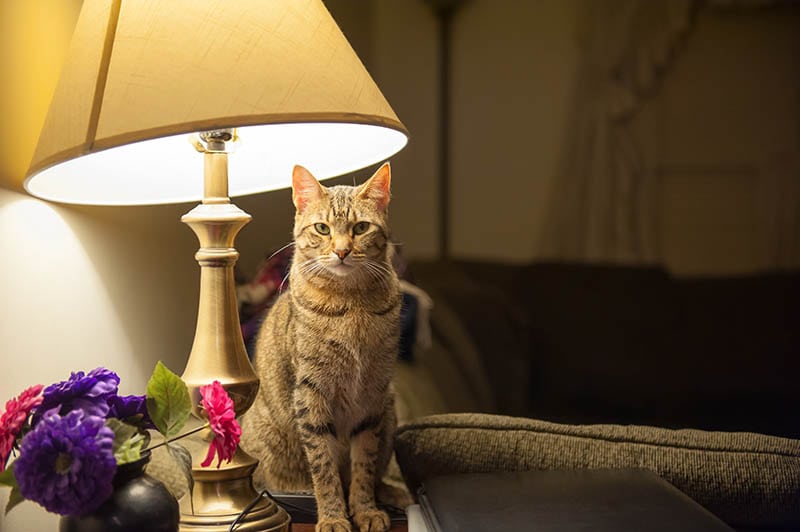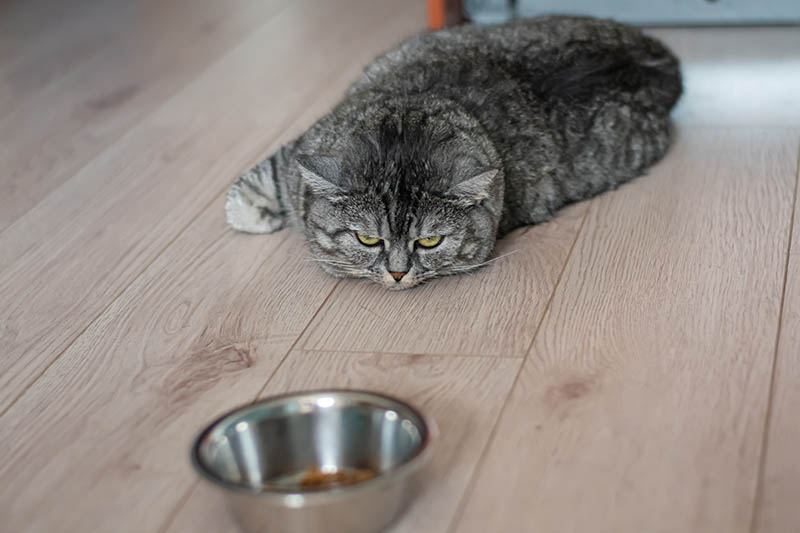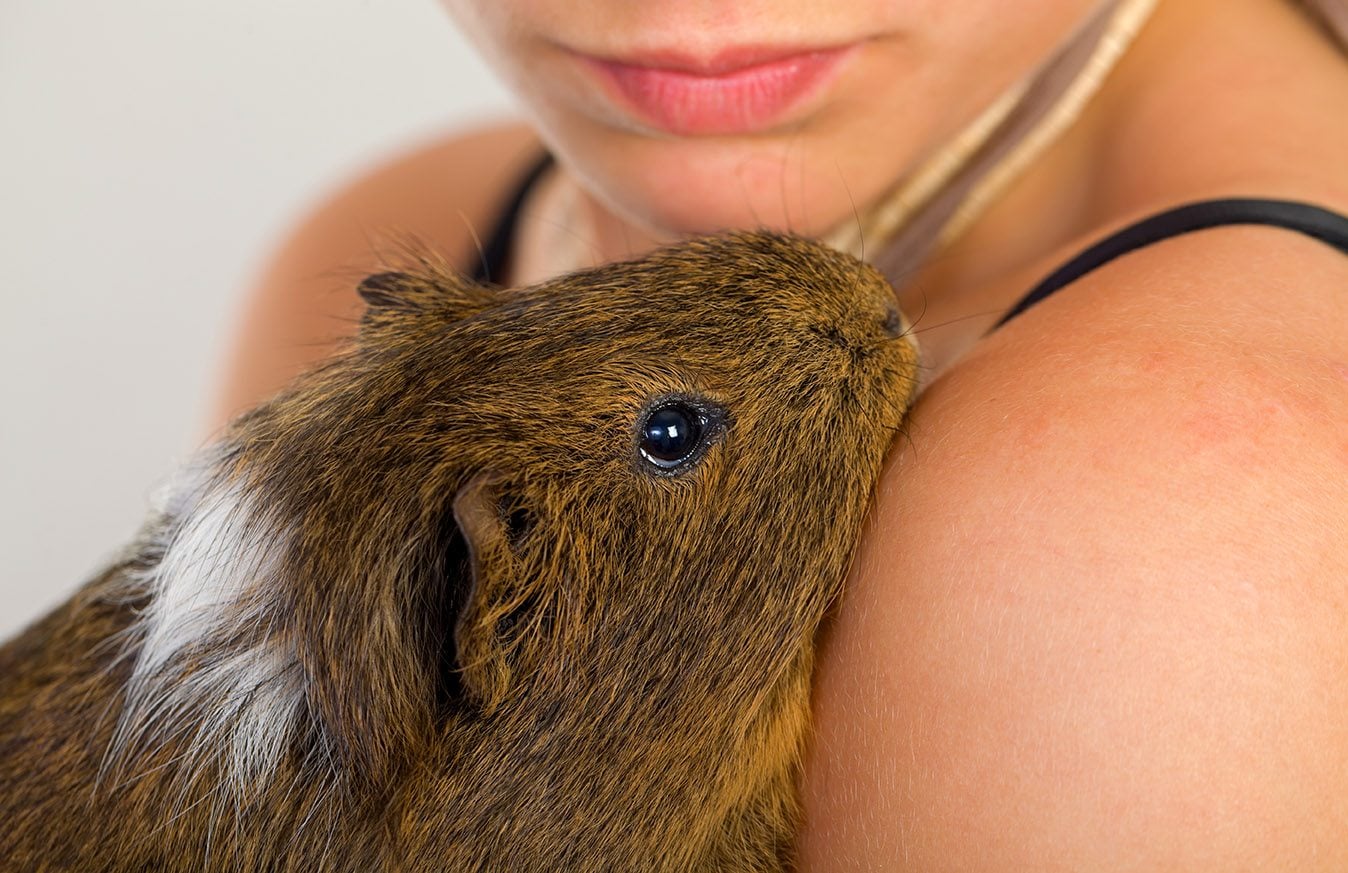VET APPROVED

The information is current and up-to-date in accordance with the latest veterinarian research.
Learn more »Click to Skip Ahead
If you own a cat, they will inevitably knock things over once in a while. Sometimes that can be amusing, but the sight of a valuable item lying in pieces on the floor is not a laughing matter.
But why do cats do this? Are they deliberately trying to annoy you? There is not enough scientific research on this issue. But that has not stopped cat experts from fronting their theories.
According to veterinarian Evelyn Kass, DVM, knocking things over is among several normal cat behaviors1. perts offer three possible reasons for this: Hunting instincts, attention-seeking, and playfulness. Read on to learn more about each.

The 3 Possible Reasons Why Cats Like to Knock Things Over
1. Hunting Instinct
Cats have natural predatory instincts. That means they are always hunting for something, and anything could be potential prey, mouse or not.
Part of the hunting process involves investigating. The cat must first make sure the object of interest is alive. They also need to know whether it is harmless or potentially dangerous.
Your cat will sniff at the object and use their paw to bait it around, looking for movement. After all, the thing could be playing dead (a trick popular with mice). Sadly, these items eventually end up on the floor.

2. Getting Your Attention
It’s hard to believe, but sometimes the cat could deliberately knock things off the countertop. Yes, your suspicions could have been right all along.
Your cat can knock things off on purpose to get your attention. They may even look at you while doing it.
Cats love attention, some more than others. So, if your cat notices you have not acknowledged them lately, they will do anything to get you to notice them. That includes knocking that expensive vase off the shelf.
It may not be entirely the cat’s fault, though. Remember how you acted the last time they knocked something over? Perhaps you reacted positively by trying to offer them food or negatively by scolding them. Either way, the cat interpreted that as attention, and now they want more.
3. They Want to Have Fun
Cats are naturally playful and are always looking for ways to have fun. If you are not playing with them or offering exciting toys and puzzles, they will find other ways to stimulate their mind.
In particular, house cats can get bored fast, especially when you leave them by themselves most of the time. Sooner or later, the boredom will get to them, and they will turn your valuable items into toys.
Cats are also naturally curious and want to explore new changes in their surroundings. For instance, the new box of pens you placed on the table will pique their interest more than the toys they always have around.
Even if all you have done is rearrange items in your living room, the cat will still want to check things out. They will pick up on the subtlest of changes and proceed to investigate.
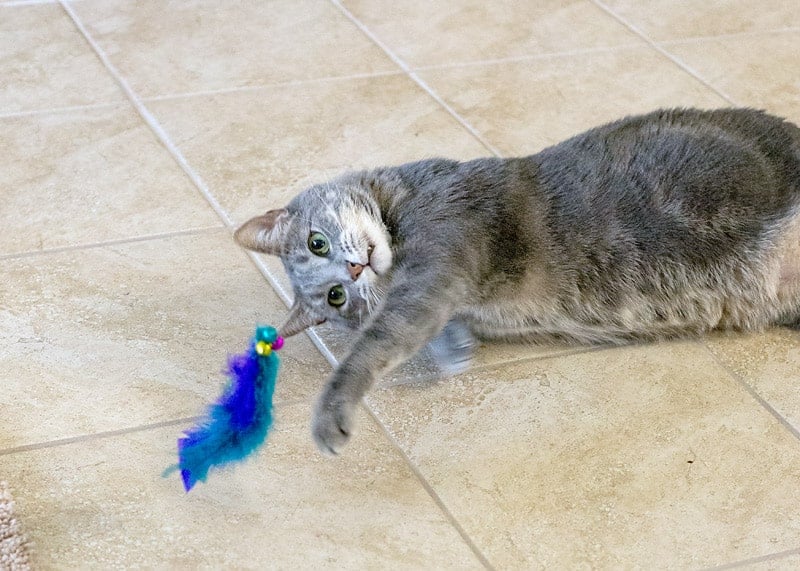

How to Deter the Behavior
Trying to tame behavior that comes as an instinct can be challenging. So, the most obvious solution is removing items that might pique your cat’s interest from view. But knowing cats, that can be almost everything.
Fortunately, there are several things you can try to keep this behavior in control. Understanding the motivation behind the behavior can help you know which method to use in your case.
Schedule Play Time
Playtime is the perfect way to give your cat the attention they crave. It will also provide adequate mental and physical stimulation, ensuring your cat doesn’t need to knock things over.
Set aside at least 20 minutes several times a day and incorporate games and toys that play into your cat’s predatory instincts. Kick sticks and wand toys are perfect examples.
Redirect their Attention
You can also redirect your cat’s attention every time they want to engage in destructive behavior. So, the next time your cat jumps on the countertop to knock things over, offer them some toys or invite them for a play session.
Regular play sessions can help your cat stay happy and healthy. Why not start the play with a fun toy like Hepper's Catnip Stick Toy? These sturdy toys are double-bagged, bite-proof, and filled with 100% organic catnip. Choose your favorite pastel color and treat your cat to hours of fun!
At PangoVet, we've admired Hepper for many years, and decided to take a controlling ownership interest so that we could benefit from the outstanding designs of this cool cat company!
Rotate Toys
Toys can be the perfect distraction. However, your cat can get bored with them quickly and switch their interest to the new items on the table or shelf.
Having a variety of toys is the answer. But don’t let them play with them all at once. Keep some of them hidden and rotate whenever they get too familiar with some.
If your cat loves knocking things off your countertops just for the sake, buy toys they can knock over. A puzzle feeder is a great example, especially the one where the kibble falls out when the cat knocks it around.
Don’t React
Ignore your cat the next time they knock something over. The worst thing you can do when they try to get your attention by doing something naughty is to react. That will only serve to reinforce the behavior.
Reacting on the spot will only give the cat what it craves. They will remember that experience the next time they feel ignored, thus creating a cycle that will be hard to break.
So, remember to stop yourself whenever you feel the urge to scream at the cat or rush in to clean the mess. Instead, wait a little longer and only clean up when the cat forgets about it.
Use Positive Reinforcement
You can use treats and playtime to reinforce your cat’s good behavior. Reward them when they fall for your distractions and abandon their less desirable ways of knocking things over.
If you do that enough times, the cat will realize engaging in safe play is the only way to get your attention. That may make them refrain from knocking things over.


How to Keep Your Cat Safe
Sometimes you can worry too much about your valuable items and forget your cat’s health and life are at stake too. The cat could knock down heavy unsteady objects on themselves or step on sharp objects such as broken glass or a knife.
Controlling the cat’s behavior is essential, but some items should not be lying around for your pet to find. These include:
Sharp Objects
Keep sharp objects like knives, razors, and scissors away from your cat. But if they have to be close by, don’t place them near the edge of shelves, countertops, or tables.
Breakable Items
Keep breakable items such as glasses out of your cat’s reach. A slight push with the paw is enough to knock them off to the floor, so you better tuck them away in your cabinet.
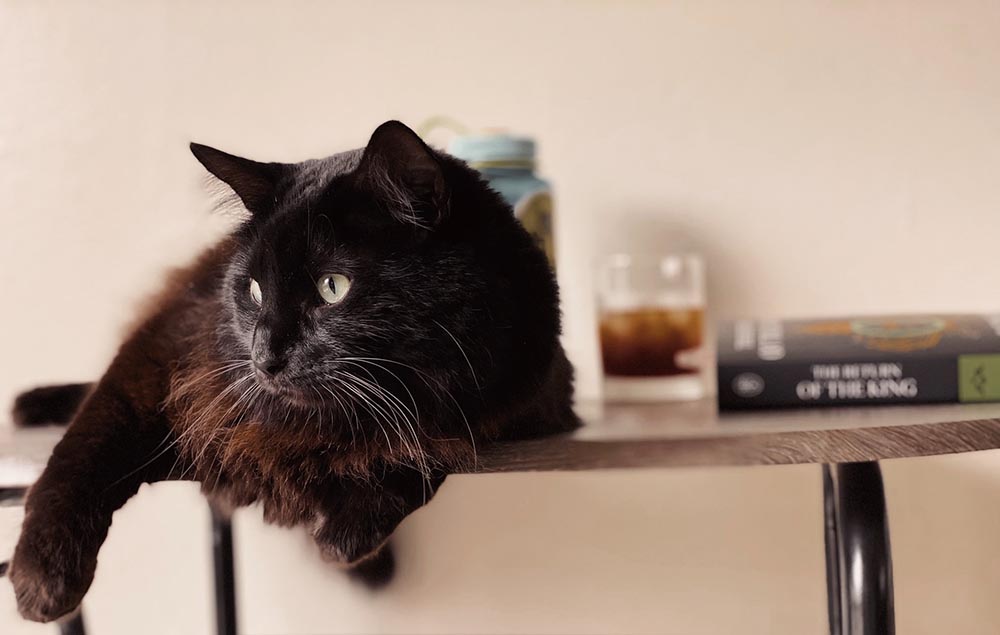
Heavy Objects
Don’t put heavy unsteady objects close by since they can fall on your cat. Be sure to anchor items like TVs and keep your house plants in sturdy containers.
Household Cleaners
Some household cleaners like bleach are poisonous to your cat. Therefore, avoid leaving them around where your cat could knock them over. Instead, keep them in secure containers and lock them in a cabinet.
Poisonous Plants
Some plants and flowers are toxic to cats. Examples include sago palms, irises, and lilies. These plants should not be kept inside the home at all, as even small amounts of the plant material and even pollen in the case of lilies, can cause significant kidney damage. Keeping vases of such flowers outside of your cat’s reach may also not be entirely safe, as cats always seem to find a way to get to whatever it is that they shouldn’t.
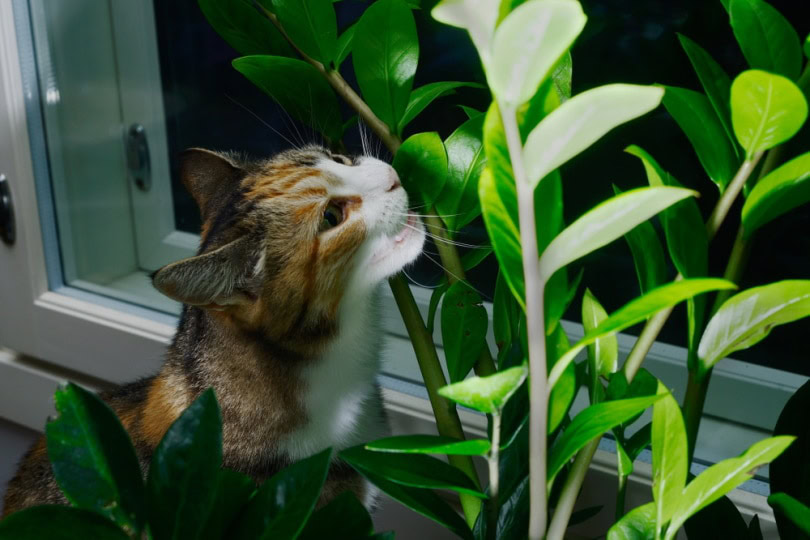

Conclusion
It is not unusual for your cat to knock things over. Eliminating this often undesirable behavior may be impossible. But you can certainly manage it using the methods we outlined above.
Understanding the motivation behind your cat’s actions will allow you to know which method can work in your specific case. But remember to avoid any reaction that would serve to reinforce the behavior.
Most importantly, don’t forget your cat’s health and safety is also at stake. Some objects can be dangerous to your feline friend, and it is better to keep them away if possible.
Featured Image Credit: Martin Haas, Shutterstock
